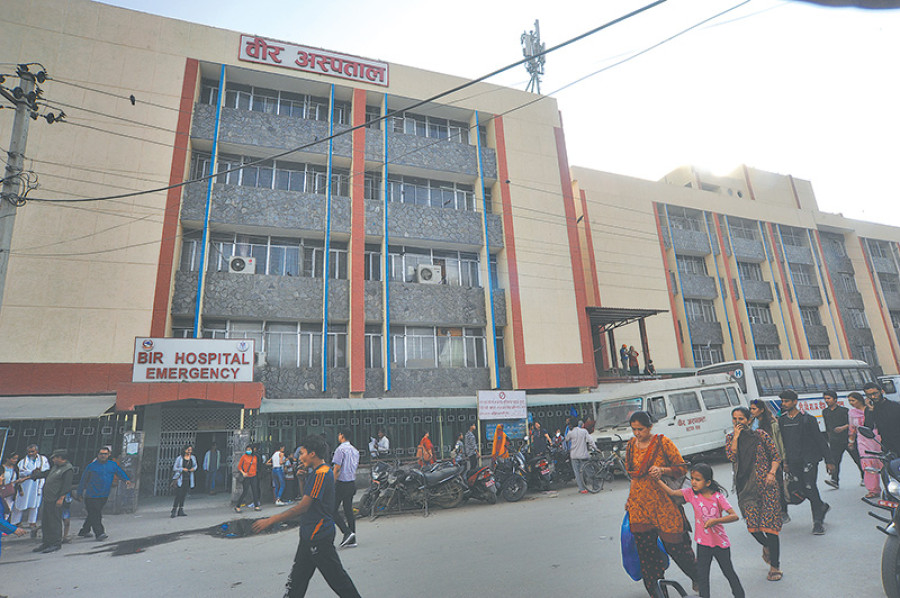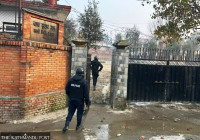Valley
Majority of hospitals in Valley flout basic norms
A majority of hospitals, including private and state-run health facilities operating inside Kathmandu Valley, have been dumping waste and sewage directly into drainage without treatment, increasing the risk to public health.
Chandan Kumar Mandal
A majority of hospitals, including private and state-run health facilities operating inside Kathmandu Valley, have been dumping waste and sewage directly into drainage without treatment, increasing the risk to public health.
Inspections by the Department of Environment of 41 community and private hospitals in the three districts of the Valley show most medical facilities flout rules and do not follow even basic standards to keep their premises environment-friendly.
Officials noted 39 hospitals failed to comply with even the basic standards.
Department of Environment Director General Jhalak Ram Adhikari told The Post, “We examined how and whether they complied with environmental measures and how much concern they have for the environment and the public. What we found was awful. It is outrageous how irresponsible they have been.”
The department’s team inspected hospitals with more than 25 beds. The team inspected sanitation, waste management practices, and the overall environmental friendliness of the hospitals.
“People visit hospitals when they are sick and need health services. If hospitals do not maintain the minimum environmental standards then we can imagine the level of services patients would get,” Adhikari said.
Managing waste efficiently is an issue with all hospitals the team inspected. All kinds of wastes, including infectious biomedical, are neither segregated nor stored separately. Some hospitals did not use separate buckets for biomedical, biodegradable, and non-degradable waste.
As per the existing rules, they should not only segregate these wastes at the source, but also store and dump them separately. Incredibly, hospitals dispatch contaminated waste to daily garbage collection vans directly.
According to Adhikari, even hospitals that have separate bins store all kinds of waste together.
“It is unbelievable that even popular and expensive hospitals perform so poorly in meeting these norms. They should follow norms without anyone having to tell them,” he said.
Officials said the government body would soon reveal names of hospitals to the public because people have the right to know the standards practiced.
Hospitals should treat their waste by autoclaving or chemical sterilization before dispatching it out of their premises. Inspectors noted one hospital did not use an autoclave, a pressure chamber used for treating waste at a high temperature, because of a missing bolt, costing less than Rs50.
“Hospitals have invested millions, but they ignore peoples’ right to live in a safe environment. This is an environmental injustice and a crime of intolerable level,” said Adhikari.
Some hospitals burned waste on their building’s roof. Another major problem is hospitals releasing their sewage directly into the municipal drainage system without any treatment. The department inspectors noted a used syringe, discarded blood, and even body parts remaining after surgeries.
Hospitals’ wastewater tests show high lead contamination and other harmful chemicals. All inspected hospitals failed safe water test.
“We have informed these hospitals to improve all shortcomings in the next 15 days before we take action. This is a public crime which cannot be tolerated,” Adhikari said.
According to the Article 18 of the Environment Protection Act 1997, individuals and facilities that put public health at risk can be penalised by up to Rs2.5 million.




 20.12°C Kathmandu
20.12°C Kathmandu












